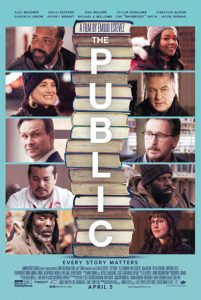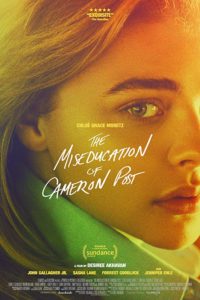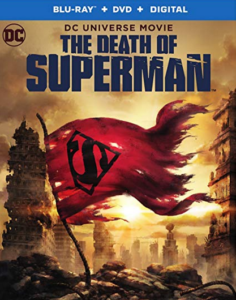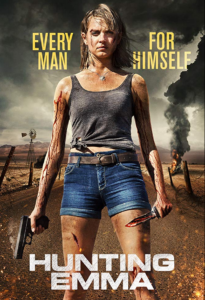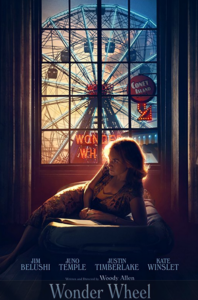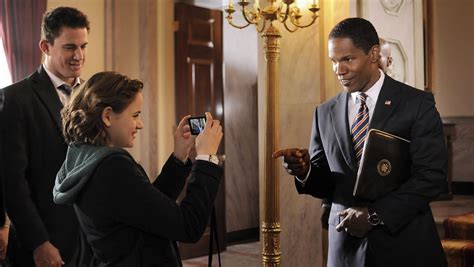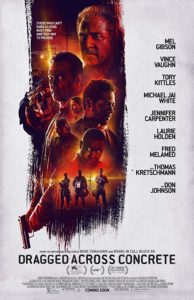













S. Craig Zahler is back with a solid and satisfyingly rough follow-up to the jaw-dropping Brawl in Cell Block 99, reuniting with Vince Vaughn and teaming him up with Mel Gibson in a literally gut-ripping, downbeat buddy cop brutalizer. Seasoned detective Brett Ridgeman (Gibson) and partner Anthony Lurasetti (Vaughn) are caught on video using excessive force in the apprehension of a Hispanic drug dealer, creating a scandal for their police department, and get suspended without pay by their superior (Don Johnson). Both men need money – Lurasetti because he plans to propose marriage to his girlfriend, and Ridgeman because his daughter is no longer safe in their ghettoized neighborhood and the family needs to get out. At the extent of his tether, Ridgeman hatches a half-baked plan to rip off a heroin dealer that winds up with him and his partner pitted against a gang of formidable paramilitary bank heisters. A career highlight for Gibson equal to his over-the-hill hero roles in Edge of Darkness and Blood Father, and yet another impressive entry in Vaughn’s growing résumé of scary tough guy characters after True Detective and Brawl in Cell Block 99.
4.5 out of 5 stars. Ideological Content Analysis indicates that Dragged Across Concrete is:
Anti-drug. Troy Kittles plays ex-con Henry Johns, whose stint in prison illustrates a very possible outcome for a dealer. His mother, a heroin addict, has turned to prostitution. It is also mentioned that the dealer Ridgeman mistreats has been selling drugs to children, undermining any potential audience sympathy for the criminal.
Ableist! Lurasetti compares a hearing-impaired woman’s speech to a dolphin’s.
Anti-Semitic! Writer-director Zahler, as Soiled Sinema’s Ty E. puts it, is an artist who seems to have “transcended his Jewishness”, which may account for the brief and harmless but stereotype-oozing portrayal of the friendly jeweler Feinbaum, who says his wife has two brothers who are therapists and three sisters who are lawyers.
Homophobic! Henry dismisses his “cocksuckin’ father” as “a yesterday who ain’t worth words.” Disapprovingly, Ridgeman fails to see “much of a difference these days” between men and women, and also mocks Lurasetti’s “gay hair s**t” disguise.
Media-critical. Chief Lieutenant Calvert (Johnson) derides the anti-police bias of “the entertainment industry formally known as ‘the news’”, which “needs villains” and fabricates them if necessary.
Natalist, i.e., sexist! Unexpectedly, the movie features a tender (albeit offbeat) portrait of a new mother, Kelly Summer (Jennifer Carpenter), desperately trying to avoid going back to work after using up her maternity leave. The necessity of keeping a job seems cruel and absurd now that she has a baby. Her proper place, she realizes, is at home with her child. Her boss, Mr. Edmington (Fred Melamed) describes her as a “radiant vision of maternity”. The section of Dragged Across Concrete that follows Kelly is even more affecting on a second viewing.
Class-conscious. “My job [in a bank] is so stupid,” Kelly laments. “I go there and I sell chunks of my life for a paycheck so that rich people I’ve never even met can put money in places I’ve never even seen.” Henry’s little brother Ethan, meanwhile, sees big game hunting as “rich white people s**t”. There is also the suggestion that those with wealth have the means to elude the law, as Ridgeman at some point in the past allowed the son of businessman Friedrich (Udo Kier) to escape punishment for an unnamed crime in exchange for a future favor from the well-connected father. Ridgeman no longer believes in a meritocratic American dream. “I don’t politick and I don’t change with the times and turns that that s**t’s more important than good, honest work,” he tells his partner, determining: “We have the skills and the right to acquire proper compensation” for thankless years of public service.
Race-realist – with exceptions. “They’re so cute before they get big,” says Ridgeman’s daughter Sara (Jordyn Ashley Olson) – ostensibly with reference to lion cubs, but subtextually referring to the black boys who harass her when she walks home from school. “This fucking neighborhood, it just keeps getting worse and worse,” frets Mrs. Ridgeman (Laurie Holden). “You know I never thought I was a racist before living in this area. I’m about as liberal as any ex-cop could ever be, but now,” she demands, “we really need to move” or else, “someday, you and me,” she tells her husband, “we are in a hospital room with our daughter talking to a rape counselor.”
Ridgeman and his partner are both depicted as casual racists. “I’m not racist,” Lurasetti jokes: “Every Martin Luther King Day I order a cup of dark roast.” In a twenty-first century world in which “digital eyes are everywhere”, however, old-school law-and-order enforcers like Ridgeman and Lurasetti are living on borrowed time. “Like cell phones, and just as annoying, politics are everywhere,” Calvert observes. “Being branded a racist in today’s public forum is like being accused of communism in the fifties. Whether it’s a possibly offensive remark made in a private phone call or the indelicate treatment of a minority who sells drugs to children […] It’s b******t – but it’s reality.”
Softening Dragged Across Concrete’s racial edge is the presence of Henry, the conspicuous specimen of Africanus cinematicus played by Troy Kittles. This ghetto thug with the soul of a poet is given to saying things like, “Before I consider that kind of vocation, I need to get myself acclimated” and is at all times depicted as being more astute than those around him. His little brother Ethan, too, is portrayed as an underprivileged but bright lad of great potential. The case can be made that Dragged Across Concrete makes examples of its most prominent bigots by punishing them while rewarding Henry in the end. Ridgeman, who has refused to change with the times, is taught the important lesson that he “should have trusted a n*****.”









